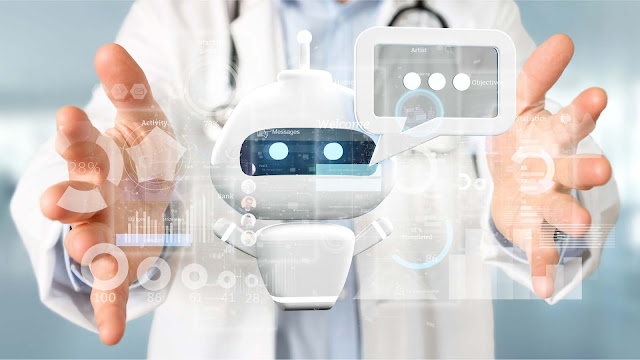The Challenges and Opportunities of Healthcare Chatbots
 |
| Healthcare Chatbots |
Healthcare chatbots, powered by artificial intelligence
(AI), have emerged as a promising tool in the healthcare industry. These
intelligent virtual assistants are designed to interact with patients, provide
medical advice, assist with scheduling appointments, and even offer emotional
support. Whilechatbots present numerous opportunities to improve patient care
and streamline processes, they also come with their fair share of challenges.
Challenges of Healthcare Chatbots
- Ensuring
Accuracy and Reliability: One of the primary challenges in developing chatbots
is ensuring the accuracy and reliability of the information they provide.
Chatbots must be trained on vast amounts of medical data and updated
regularly to keep up with the latest advancements in healthcare. Failure
to provide accurate information can lead to misdiagnosis or inappropriate
medical advice, which can have serious consequences for patients.
- Maintaining
Patient Privacy and Data Security: Chatbots handle sensitive patient
information, including personal and medical data. It is crucial to ensure
robust security measures are in place to protect patient privacy and
prevent unauthorized access to this data. Adhering to data protection
regulations, such as HIPAA (Health Insurance Portability and
Accountability Act) in the United States, is essential to maintain patient
trust and compliance.
- Language
Understanding and Contextual Interpretation: Chatbots need to have a deep
understanding of natural language and the ability to interpret the context
of patient inquiries accurately. They must be able to comprehend nuanced
questions and provide appropriate responses. Language understanding
challenges can arise due to variations in dialects, slang, and ambiguous
queries, making it essential to continually improve the chatbot's natural
language processing capabilities.
- Dealing
with Complex Medical Cases: Chatbots excel at handling routine inquiries
and providing general medical advice. However, they may struggle when
faced with complex medical cases that require specialized knowledge and
expertise. It is crucial to set clear expectations for users and ensure
that chatbots can recognize when a situation requires the intervention of
a human healthcare professional.
According to Coherent Market Insights, The global
healthcare chatbots market was valued at US$ 200.9 Mn in 2022 and is forecast to reach a value
of US$ 593.5 Mn by 2030 at a CAGR of 14.5% between 2023 and 2030.
Opportunities of Healthcare Chatbots
- Improved
Access to Healthcare: Chatbots have the potential to enhance accessibility
to healthcare services, especially in remote areas or underserved
communities. Patients can easily access medical information, schedule
appointments, and receive basic care guidance without the need for
physical visits. This convenience reduces the burden on healthcare
facilities and improves overall healthcare access.
- Enhanced
Patient Engagement: Chatbots can actively engage patients in their
healthcare journey by providing personalized recommendations, reminders,
and educational materials. Through continuous interaction, chatbots can
motivate patients to adopt healthier lifestyles, adhere to medication
regimens, and manage chronic conditions more effectively. This increased
engagement can lead to better health outcomes and improved patient
satisfaction.
- Efficient
Triage and Resource Allocation: Healthcare chatbots can play a crucial
role in triaging patients, helping them determine the urgency and severity
of their symptoms. By providing initial assessments, chatbots can direct
patients to appropriate resources, such as self-care instructions, nearby
clinics, or emergency services. This streamlines the triage process and
optimizes the allocation of healthcare resources.
- 24/7
Availability and Support: Unlike human healthcare professionals, chatbots
can provide round-the-clock availability and support. Patients can access
healthcare information and assistance at any time, reducing wait times and
ensuring timely responses. Chatbots can offer immediate support for common
inquiries, reducing patient anxiety and promoting a sense of reassurance.
Healthcare chatbots have the potential to transform the
healthcare industry, providing enhanced access to care, improving patient
engagement, and optimizing resource allocation. However, the challenges
associated with accuracy, privacy, language understanding, and complex cases
must be addressed to ensure their effectiveness and safety. As technology
advances and AI algorithms improve, chatbots will continue to evolve, becoming
more sophisticated and reliable. By leveraging the opportunities and overcoming
the challenges, chatbots can contribute to a more efficient and patient-centric
healthcare system.



Comments
Post a Comment